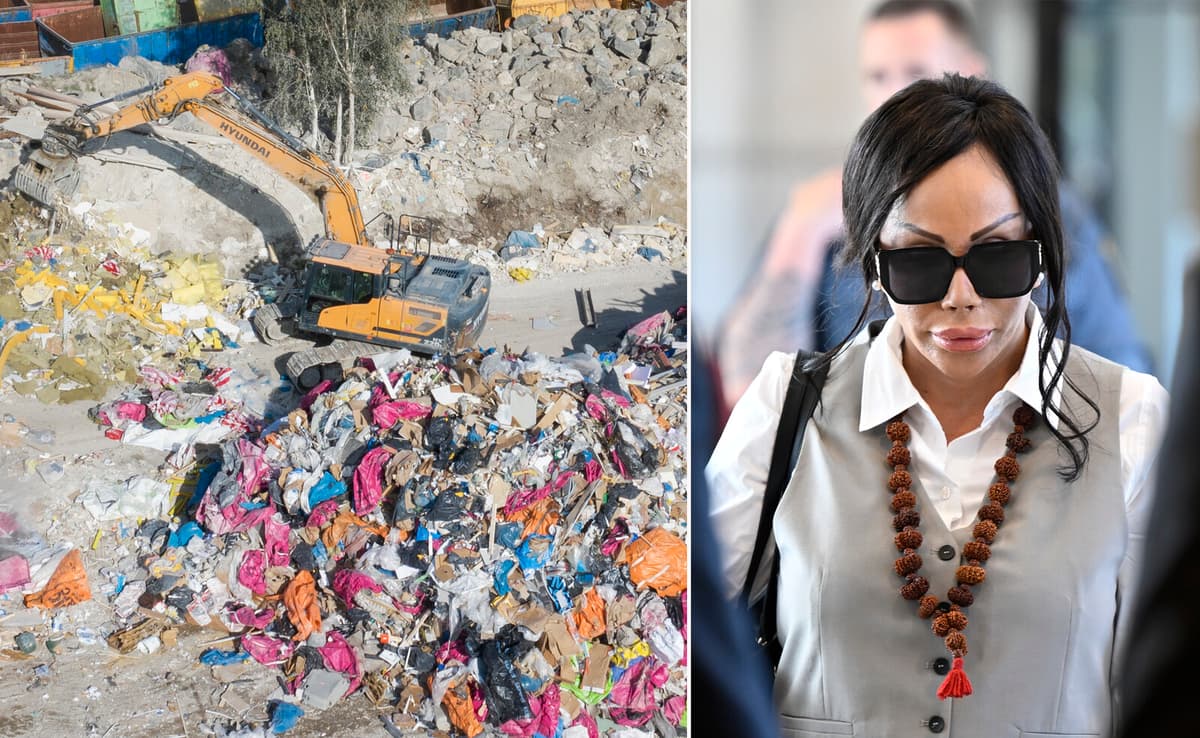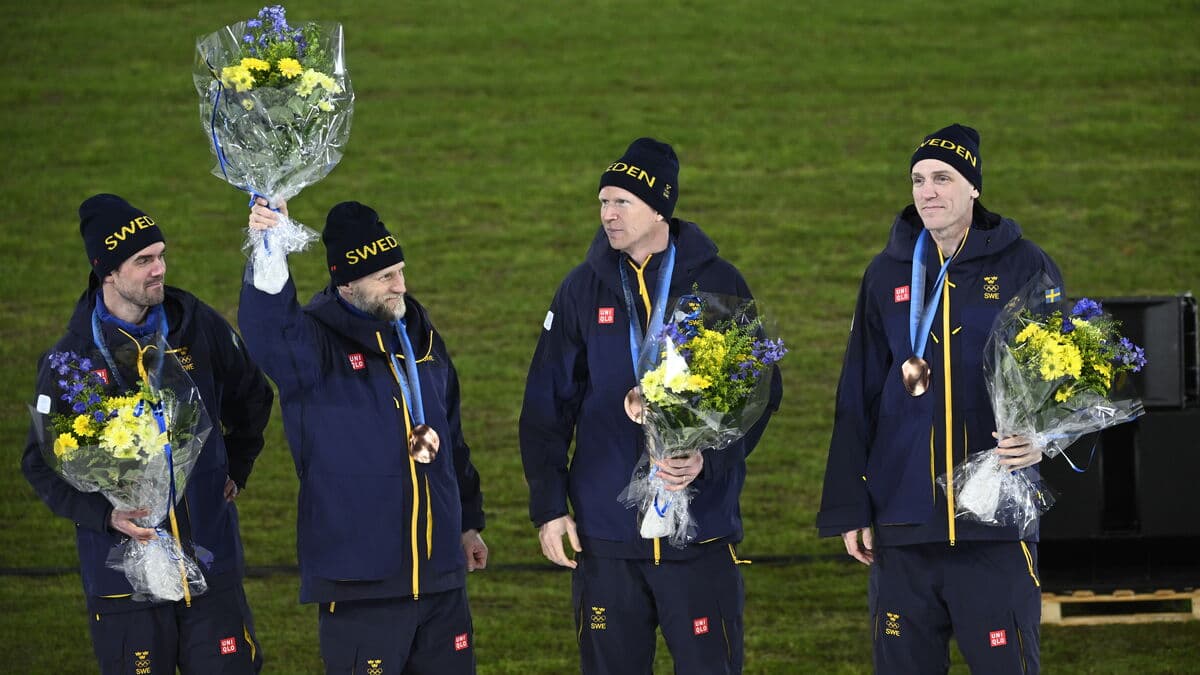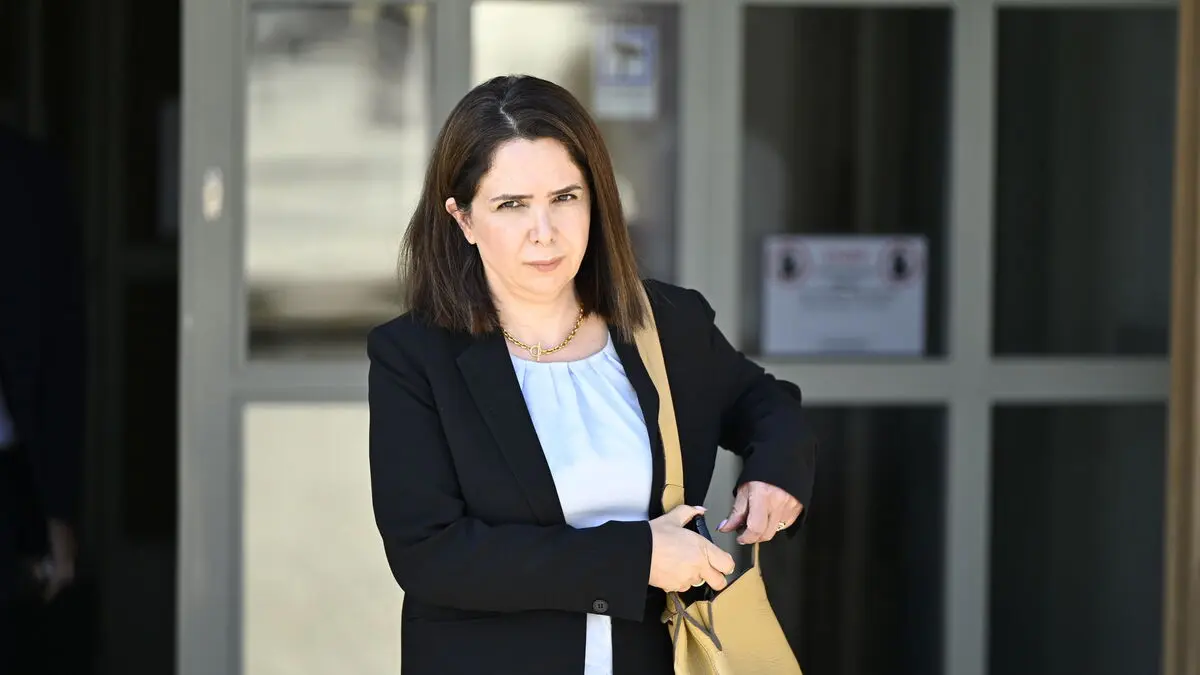Ten of the eleven defendants in the Think Pink scandal, Sweden's largest environmental crime case, are sentenced by the Södertörn District Court.
In the nearly 700-page verdict, the court finds that serious environmental crimes have been committed at 19 of the 21 locations in central Sweden covered by the indictment.
Waste management has been significantly inadequate or incorrect to a significant extent, says Niklas Schüllerqvist.
Hazardous substances
The criminal activity took place from 2015 until 2020, when the company was declared bankrupt after the investigation began.
The waste, mainly construction and demolition waste, was supposed to be sorted but was crushed and piled up or buried. It has been left, among other things, near water protection areas, unprotected stormwater wells, residential areas, and protected coastal areas.
The handling has involved great risks and there have been emissions of hazardous substances, says Schüllerqvist at a press conference.
This includes, among other things, mercury, lead, chromium, copper, nickel, zinc, and several other metals, as well as arsenic.
The business has also caused significant inconvenience to residents in the surrounding area and fire hazards in several places, says magistrate Joel Björk-Werner.
This risk was also realized in Kagghamra, where nearby residents were affected by hazardous smoke and in some cases had to be evacuated.
The motive is said to have been the large sums of money that can be earned by charging for waste management that is never carried out.
They have not had the ambition to take care of it in the way that environmental legislation prescribes, says Schüllerqvist.
At the center of the scandal is Fariba Vancor (formerly Bella Nilsson). She is a co-founder and was for several years the face of the hyped waste company, where she became known as the "Queen of trash".
She receives the longest sentence of all, six years in prison.
She is the one who has controlled the business and the other defendants, and controlled how to handle the waste and decided when to acquire new sites to store waste on and so on, says Schüllerqvist to TT.
TV profile acquitted
Among the remaining four who were described as the most active by the prosecutors and who were charged with serious environmental crimes were co-founder Thomas Nilsson and TV profile Leif-Ivan Karlsson, who had a CEO role within the group. Three of them are sentenced, but Leif-Ivan Karlsson is completely acquitted.
A 41-year-old man referred to as the "waste broker" receives the second-longest sentence, imprisonment for 4.5 years.
He has had a very central role in finding different ways to get rid of the waste, typically different methods that have not been allowed. In his case, it is also the use of false documents and methods to mislead the supervisory authorities that makes it aggravating, says Schüllerqvist.
A fifth person, a consultant, is sentenced for aiding and abetting serious environmental crime. Five more are sentenced for crimes of normal severity. In total, seven are sentenced to prison and three to probation.
The five main defendants who are sentenced for crimes will together pay a total of approximately a quarter of a billion kronor in damages to, among others, Botkyrka Municipality and Västerås City. This concerns costs that the municipality has incurred to handle the dumped waste.
The district court's previous decision to freeze their assets (seizure) will continue to apply.
Additionally, two of the other defendants will together pay damages regarding waste management in Laxå.
Four main defendants who are sentenced for crimes will also receive a ban on business activities. The length of the business bans is set at 10 years for the CEO (Fariba Vancor) and the Waste Broker, and 5 years for the Production Manager (Thomas Nilsson) and the Site Manager.






